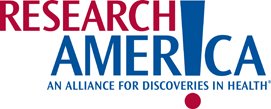The Newseum, Washington, DC
Moderator: David Leonhardt, New York Times
For John McCain 2008: Ike Brannon, PhD
For Barack Obama 2008: Tim Westmoreland, JD
Show notes:
Part 1:
- Introductory remarks by the Honorable John E. Porter
- Introductory remarks by Research!America President Mary Woolley
- What are your thoughts on removing the exclusion for employer-based health insurance (i.e. making them no longer deductible for employers), and the tax credit proposed by McCain?
- Teasing out the numbers- what is wrong with the following argument: “the McCain plan will provide $5,000 per family, but the typical family plan costs $12,000, so this will be a tax increase”?
- For Brannon: Health Affairs critiqued the McCain plan by saying that if the growth in premiums continues to increase at the same rate as the last decade, 5 million more people would be uninsured over the next 5 years. How would you address this?
- For Westmoreland: the cornerstone of the McCain plan is to reduce waste in health care. Health Affairs claims Obama’s plan does not address the core economic incentives that drive health care spending. This omission raises serious questions about fiscal sustainability. Is it sustainable to expand coverage without reducing costs?
- There are two ways to look at the NIH budget over the last ~50 years: the big picture view shows a steady increase; alternatively, there has not been a sufficient investment in research in recent years, and we are now moving backwards. Which view do you take? In real terms, what should we expect the NIH budget to be at the end of a second term (2016)?
- How could we make that money more cost-effective, and eliminate waste in the current system?
- What are your thoughts on the current administrations approach to science and scientific integrity? How would the McCain or Obama approach differ?
- (Audience question): McCain has talked about freezing Medicare spending. This would aggravate situation for doctors who already experience reduction in payments for treating patients on Medicare. Wouldn’t this essentially reduce coverage?
- (Audience question): concern within universities about science pipeline. We’ve all seen the NAS report, Rising Above the Gathering Storm; what are the campaigns doing to address this workforce shortage and global competitiveness?
- (Audience question): With regards to discretionary freezing that McCain has proposed—would science agencies be exempt?
- (Audience question): What are each of the campaigns doing to increase human capital plans to improve STEM teaching?






